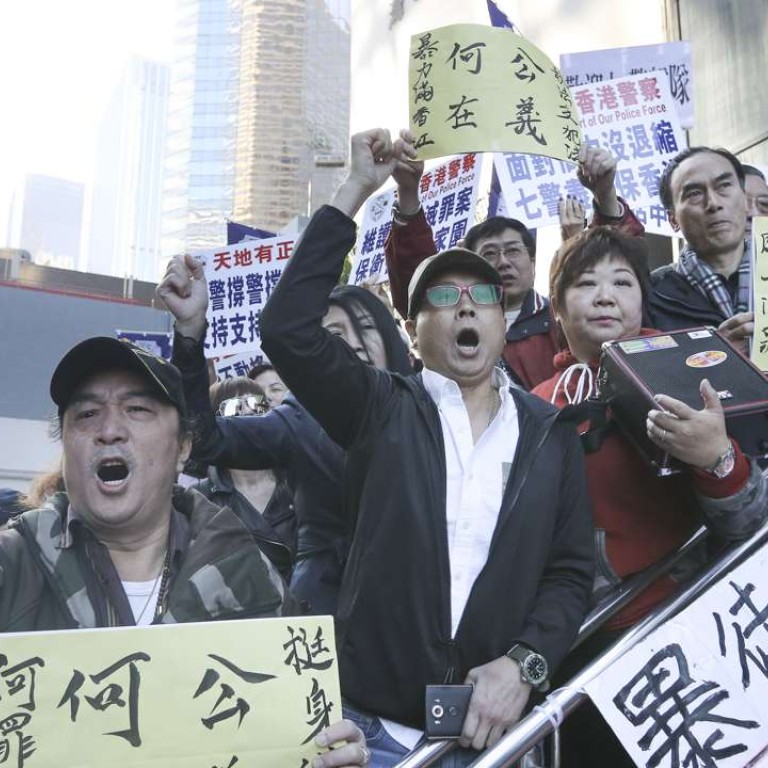
Hong Kong Justice Department to take action after online abuse of judge
Concern raised after social media comments in wake of verdicts against seven policemen found guilty of beating protester
The Department of Justice will follow up on abusive comments made about a judge on social media platforms after the judiciary expressed serious concern.
The seven men will be sentenced on Friday at the District Court.
Judge David Dufton’s verdict received a mixed response on social media, with some police supporters posting insulting criticism and abuse.
Two prominent Facebook posts by film director Clifton Ko Chi-sum drew more than a thousand comments.
“Yellow-ribbon judges favoured troublemakers in Hong Kong,” he wrote, referring to the symbolic colour of the pro-democracy civil disobedience movement. “Localist, pro-independence rioters commit arson, assault police, vandalise public property, dog judge rule leniently, or even acquit them, showing absolute favouritism.”
In another post he said: “Which Hong Kong law said we cannot criticise judges?”
Portraits of Dufton were posted on other Facebook pages, with captions accusing the judge of “messing up” Hong Kong.
In light of these recent comments, a judiciary spokesman said: “The judiciary regards it as a matter of serious concern and has referred the matter to the Department of Justice to follow up.”
A department spokesman said it would take “suitable” action.
Members of the public have the right to express their opinions ... but they must respect judicial independence
“The Department of Justice reiterates that judicial independence is the most important ring within the rule of law,” he told the Post. “Members of the public have the right to express their opinions towards court rulings and relevant matters within the permitted scope under the law ... but they must respect judicial independence at the same time and not maliciously attack judges or perform any behaviour that will harm the rule of law.”
The spokesman noted that public opinion ought to avoid being possibly seen as exerting pressure towards the courts or individual judges, especially when commenting on ongoing cases to avoid affecting the healthy development of judicial independence and the rule of law.
A police spokesman said the force had yet to receive any public complaints or a referral from the department. But he said officers would keep an eye on online remarks and take action accordingly if they suspected offences had been committed.
At the ceremonial opening of the legal year last month, Chief Justice Geoffrey Ma Tao-li called for public restraint, noting that judges were not immune to criticism and that comments ought to be informed and measured.
Secretary for Justice Rimsky Yuen Kwok-keung said on the same occasion that he had noticed worrying signs of people overstepping the mark in criticising court rulings, including personal attacks on judges, and that such abuse must be stopped.

